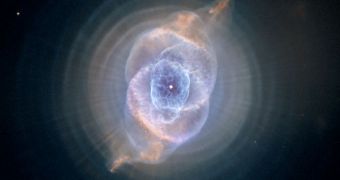The popular understanding of the term vacuum is that of a volume of space that contains nothing, or even worse, that doesn't contain air (blame the term - vacuum cleaner - for this misconception).
In fact, it is a volume of space that is essentially empty of matter, so that gaseous pressure is much less than standard atmospheric pressure, but there are still some problems in understanding the true nature of the "vacuum" of space.
Theoretical physicist Alvaro de R■jula from CERN (the European Council for Nuclear Research) in Geneva, Switzerland and a professor of physics at Boston University discussed the issue at the EPL symposium, "Physics In Our Times."
"As it turns out, the vacuum is not empty - there is a difference between the vacuum and nothingness," he stated. "Surprisingly, of all known 'substances', the vacuum is the least well understood."
From an astronomical perspective, vacuum seems to have an energy density called dark energy or cosmological constant, which is held responsible for the rapidly accelerated expanse of the Universe after the Big Bang.
The Standard Model of particle physics states that vacuum is permeated by a Higgs Field, whose presence is said to be required in order to explain the large difference in mass between those particles which mediate weak interactions (the W and Z bosons) and that which mediates electromagnetic interactions (the photon).
Scientists are hoping to detect the Higgs Field with the help of CERN's Large Hadron Collider (LHC), due to come online in November this year.
So, it seems that any form of vacuum contains energy, so the term of "nothingness" can't be associated with "vacuum."
This would have been very helpful to the Christian church of the Middle Age, who declared that vacuum doesn't exist and the whole idea is immoral and even heretical, since the absence of anything implied the absence of God.

 14 DAY TRIAL //
14 DAY TRIAL // 
